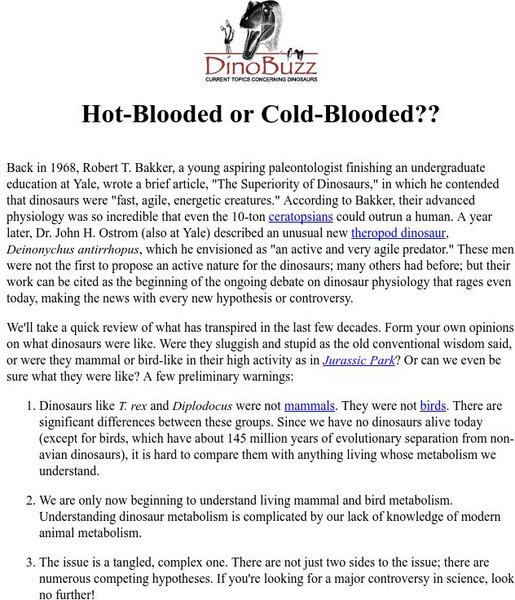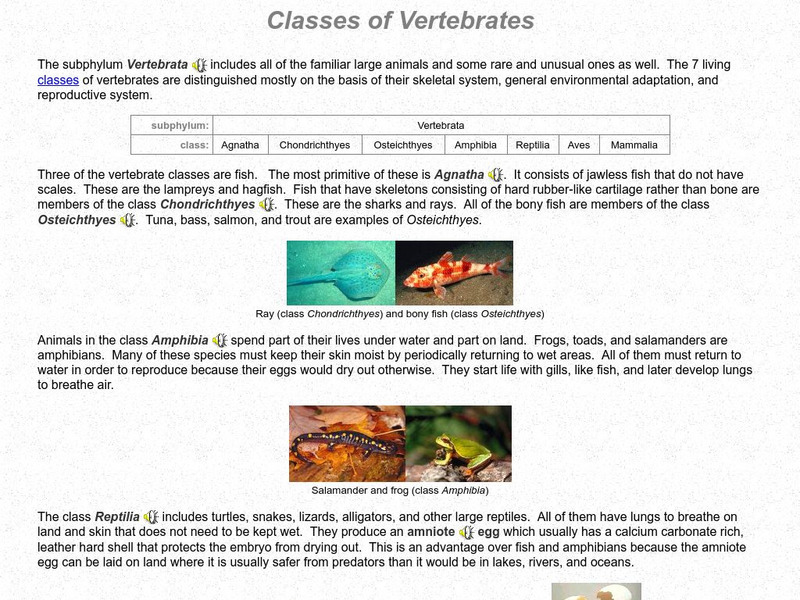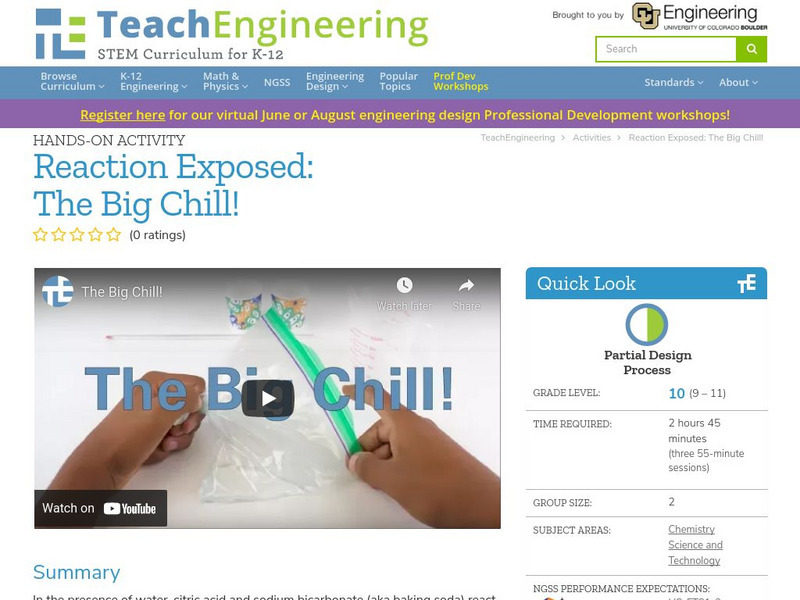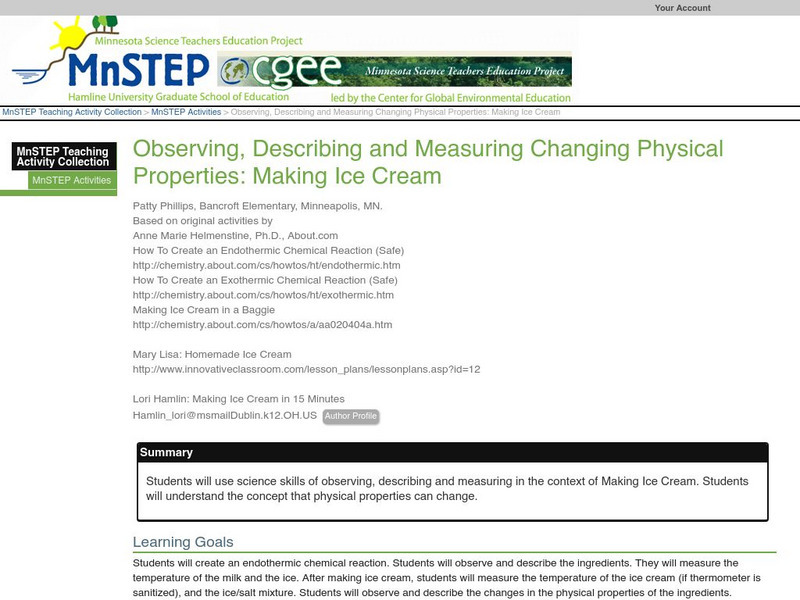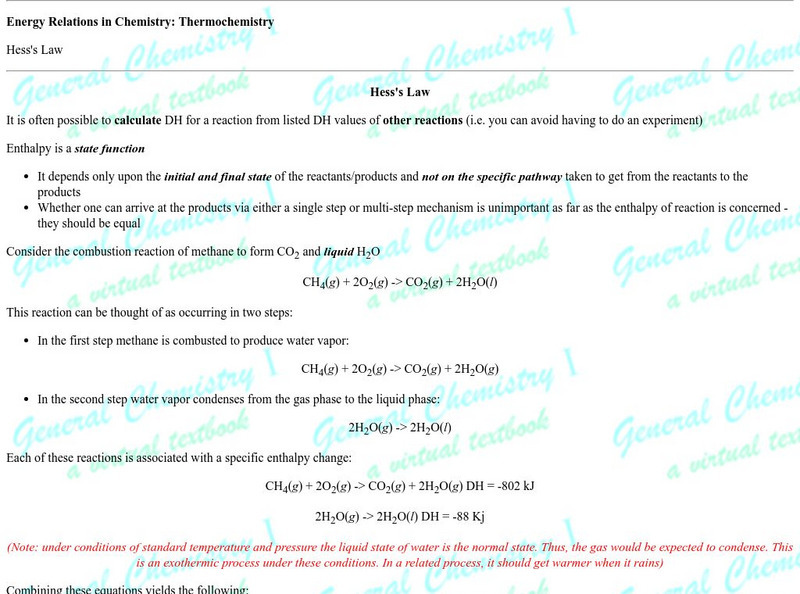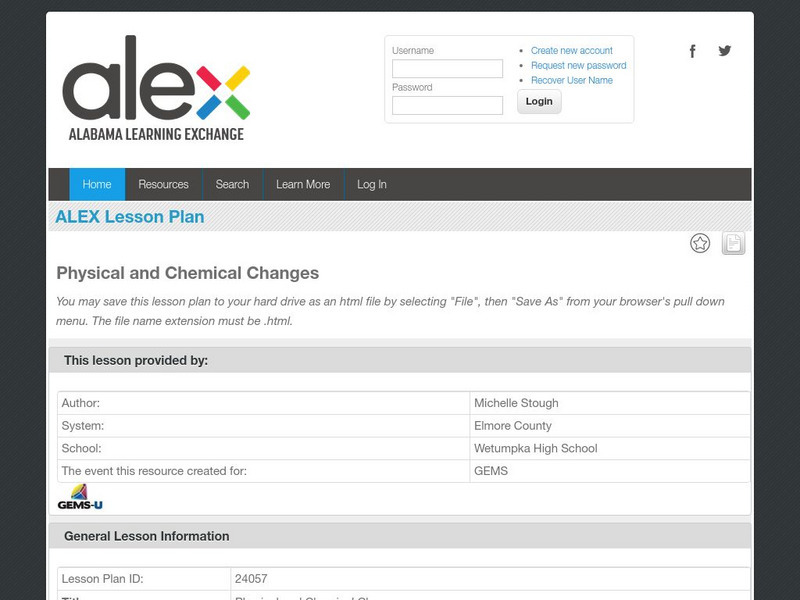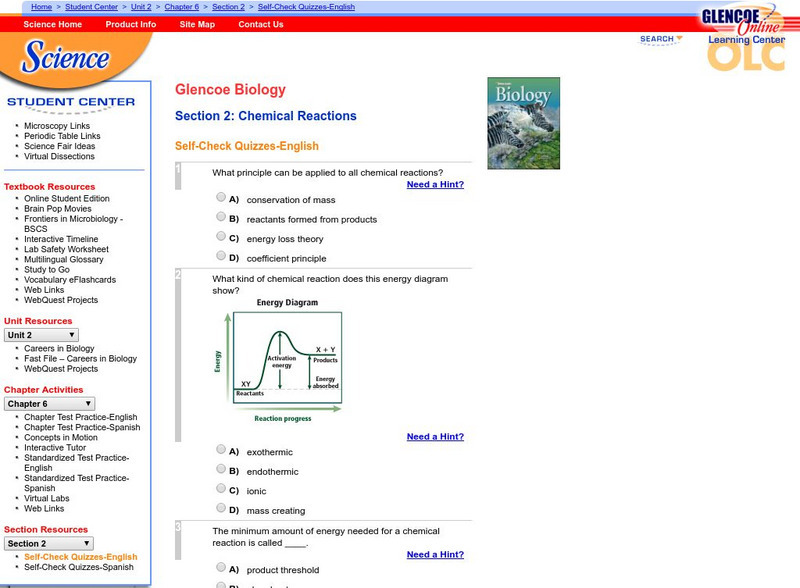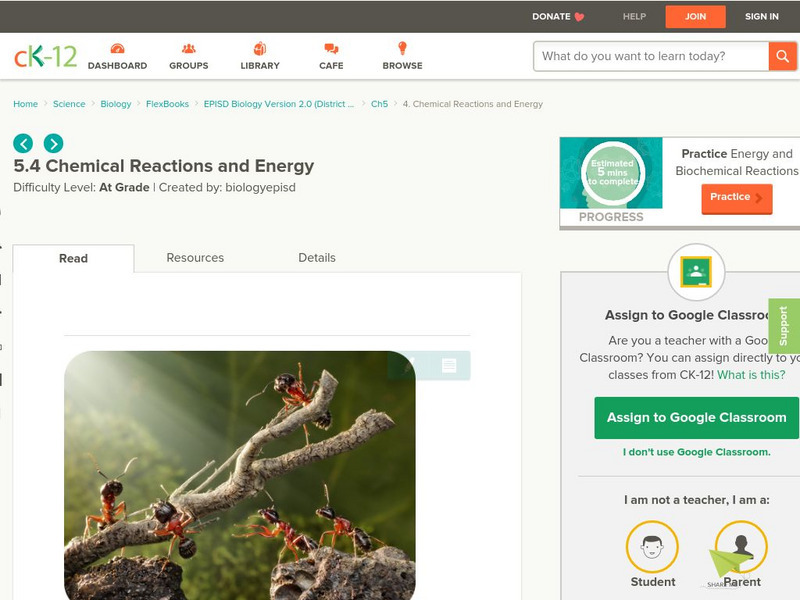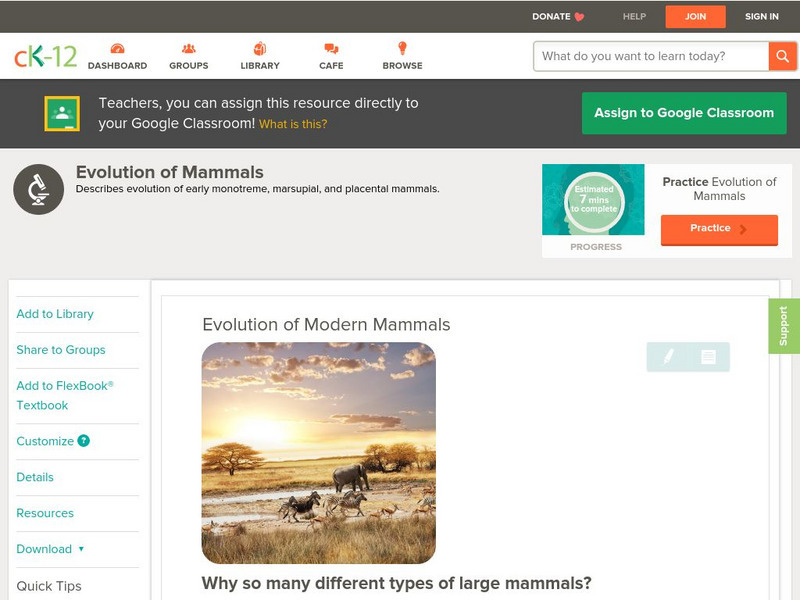Curated OER
Classification of Animals
Third graders practice classiyfying items and identify three major characteristics scientists use to classify animals. They describe the differences between ectothermic and endothermic animals.
University of California
Ucmp: Hot Blooded or Cold Blooded?
An easy-to-understand explanation of what it means to either hot- or cold-blooded.
TED Talks
Ted: Ted Ed: The Chemistry of Cold Packs
If you stick water in the freezer, it will take a few hours to freeze into ice. How is it, then, that cold packs go from room temperature to near freezing in mere seconds? John Pollard details the chemistry of the cold pack, shedding...
Palomar Community College District
Palomar College: Class
In the animal kingdom, there are seven living classes in the phylum Vertebrata. The Palomar College shares detailed information on each of these classes. Includes examples and photos as well as a follow-up quiz.
DOGO Media
Dogo News: Majestic Opah Is World's First Warm Blooded Fish!
Meet the opah, the first known warm-blooded fish. Includes video.
TeachEngineering
Teach Engineering: Reaction Exposed: The Big Chill!
Students investigate the endothermic reaction involving citric acid, sodium bicarbonate and water to produce carbon dioxide, water and sodium citrate. In the presence of water [H2O]; citric acid [C6H8O7] and sodium bicarbonate [NaHCO3]...
American Chemical Society
Middle School Chemistry: Energy Changes in Chemical Reactions
Students will conduct two chemical reactions: endothermic and exothermic. They will see an animation that shows that it takes energy to break bonds and that energy is released when new bonds are formed, and use that animation to explain...
Texas Instruments
Texas Instruments: Something's Fishy
In this activity, students examine the size, mass, and growth rates for three species of fish. They interpolate and extrapolate from best-fit models. Students compare the growth rates of endothermic and exothermic animals.
Science Education Resource Center at Carleton College
Serc: Observing,describing, Measuring Changing Physical Prop: Making Ice Cream
Students will create an endothermic chemical reaction by making ice cream. They will observe, describe, and measure the ingredients. After making ice cream, students will measure the temperature of the ice cream and the ice/salt mixture....
Michael Blaber, PhD
Florida State University: Thermochemistry: Hess's Law
This article from the Florida State University provides an excellent explanation of WHY Hess's Law works and examples of how to use the law. Common mistakes are identified and explained.
Other
Georgia Perimeter College: The Permian Period
This resource provides basic information of the changes that took place during the Permian period as well as the animals that populated the Earth during this time.
Encyclopedia of Life
Encyclopedia of Life: Mammals
Thorough reference tool explores mammals with a description, pictures, and maps. Includes facts on ecology, behavior, habitat, conservation, and external links.
Alabama Learning Exchange
Alex: Physical and Chemical Changes
The teacher will conduct the whoosh bottle demonstration to engage students. The class will then begin discussion of endothermic and exothermic physical and chemical changes. The students will then conduct the Science in Motion lab...
Clackamas Community College
Clackamas Community College: Heat of Solution
Simple description and demonstration to illustrate the concept of Heat of solution!
CK-12 Foundation
Ck 12: Heat Flow
[Free Registration/Login may be required to access all resource tools.] In this lesson, students study the difference between reactions that absorb versus release heat as well as how to measure this change in energy.
CK-12 Foundation
Ck 12: Biology: Bird Evolution
[Free Registration/Login may be required to access all resource tools.] Overview of how birds evolved from dinosaurs.
McGraw Hill
Glencoe Biology: Chemical Reactions: Self Check Quiz
A quick, five question review over various concepts of chemical reactions.
Physics Classroom
The Physics Classroom: Thermal Physics: Measuring the Quantity of Heat
Through interactive exercises and illustrated example problems, students learn about specific heat capacity and measuring the quantity of heat.
CK-12 Foundation
Ck 12: Chemical Reactions and Energy
[Free Registration/Login may be required to access all resource tools.] Students learn about the role of activation energy in a chemical reaction, and the difference between endothermic and exothermic reactions.
Sophia Learning
Sophia: Types of Reactions: Lesson 2
This lesson will give an overview of different types of chemical reactions.
CK-12 Foundation
Ck 12: Biology: Evolution of Modern Mammals
[Free Registration/Login may be required to access all resource tools.] Covers the evolution of modern mammals.
CK-12 Foundation
Ck 12: Biology: Mammal Characteristics
[Free Registration/Login may be required to access all resource tools.] Covers the characteristics and traits of mammals.



